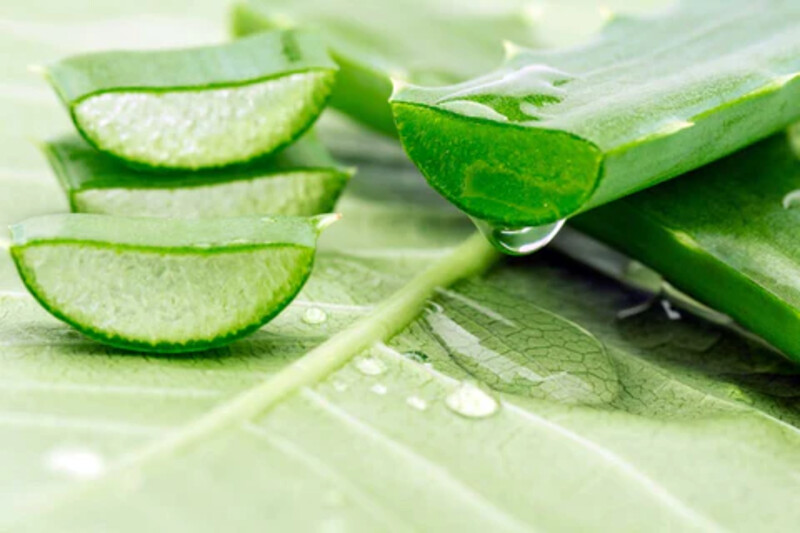Understanding Scalp Sensitivity
Dec 31, 2023 By Nancy Miller
Indeed, a sensitive scalp goes beyond mere cosmetic inconvenience. Its implications resonate in the realm of well-being. The discomfort that arises from scalp sensitivity, penetrating deeper than just external hair aesthetics, significantly impacts your overall health. The intricate network of nerves, blood vessels, and hair follicles on your scalp directly links to the nervous system. This connection influences sensations and thus shapes your general sense of wellness.
Signs of a Sensitive Scalp
Persistent Itching and Irritation
Persistent itching and irritation often signal a sensitive scalp. This discomfort varies from mild annoyance to an incessant urge for scratching. Allergies, environmental pollutants, or harsh hair products may provoke itchy scalps.
Identifying potential allergens becomes crucial to address this issue. Opting for hypoallergenic hair care products, in addition, can significantly alleviate the persistent itching discomfort.
Flakiness and Dandruff
Common indicators of scalp sensitivity include flakiness and dandruff. An imbalance in the natural oils of the scalp may be the root cause, resulting in dryness and flaking. Fungal infections or reactions to specific hair care ingredients can also trigger dandruff.
Maintaining a regular hair-washing routine remains essential for effective management. Tea tree oil, boasting potent anti-dandruff properties as one of its many benefits, provides an efficient and gentle natural remedy to address this widespread scalp concern.
Tenderness and Redness
Tenderness and redness in a sensitive scalp may signal underlying inflammation, possibly incited by aggressive hair treatments, prolonged sun exposure, or undisclosed skin conditions. To administer an effective treatment and enact long-term prevention, grasping the root cause is imperative
To mitigate tenderness and redness, you must consider taking preventive measures such as avoiding excessive sun exposure and opting for gentle hair coloring options. These steps significantly contribute to fostering a healthier scalp environment.
Natural Scalp Treatment Solutions
Tea Tree Oil: Nature's Soothing Elixir
Tea tree oil, renowned for its natural antifungal and antibacterial properties, offers an exceptional remedy for a sensitive scalp. This potent elixir alleviates itching while concurrently reducing inflammation. It thereby fosters an environment that promotes overall scalp health.
To ensure safe application, it is recommended that you dilute the tea tree oil. Optimal absorption and effective relief from persistent scalp discomfort can be provided by gently massaging the oil into your scalp.
Aloe Vera: Cooling Relief
The cooling and hydrating properties of Aloe vera position it as an ideal natural treatment for a sensitive scalp. Indeed, its benefits extend beyond soothing irritation. They actively nourish the scalp, a vital contribution towards overall scalp health.

For optimal benefits, it’s recommended to use the extraction of fresh aloe vera gel. Direct application to your scalp or incorporation into do-it-yourself hair masks imparts a cooling and revitalizing relief for sensitive scalps.
Chamomile: Gentle Calming Agent
Chamomile, renowned for its calming effects, emerges as an effective yet gentle solution to a sensitive scalp. This natural remedy not only reduces inflammation and soothes irritation but also instills a pervasive sense of relief.
When one incorporates chamomile into scalp rinses and hair care routines, its effectiveness is significantly enhanced. This gentle calming agent then contributes to a balanced and irritation-free scalp.
Coconut Oil: Nature's Moisturizer
Coconut oil's moisturizing properties render it a versatile solution for a sensitive scalp. Its regular application prevents dryness, and diminishes flakiness, ultimately fostering an optimally balanced scalp.
Directly apply warm coconut oil to the scalp and allow an extended period for deep nourishment. This is a favored method among those seeking relief from persistent scalp sensitivity. This natural moisturizer offers significant respite in such cases.
Maintaining Scalp Health - Long-Term Care
To maintain overall scalp health, it is essential to understand and proactively address your scalp's unique needs. By adopting a few simple habits, you can significantly prevent sensitivity and promote a balanced scalp.
A well-balanced diet holistically promotes overall hair and scalp health. It supports the natural functions of the scalp, reduces sensitivity likelihood, and fosters an environment conducive to healthy hair growth through adequate nutrition.
Preventing Scalp Sensitivity - Proactive Measures for Lasting Comfort
Not only must we address the sensitivity, but actively taking steps to prevent its onset is crucial for maintaining a healthy scalp. The adoption of preventative measures significantly contributes to enduring comfort and well-being.
1. Choose Gentle Hair Care Products:
Prioritizing natural, hypoallergenic ingredients in your choice of hair care products is essential to prevent scalp sensitivity. Some shampoos, conditioners, and styling products contain harsh chemicals that can strip the scalp's natural oils.
This leads to dryness and irritation. Seek out sensitively formulated products while avoiding those with sulfates, parabens, and artificial fragrances.
2. Practice Regular Scalp Massages:
To stimulate blood circulation and foster a healthy environment for your scalp, integrate scalp massages into your routine. By massaging the scalp, you aid in the distribution of natural oils which prevents dryness and flakiness.
Employ gentle, circular motions; moreover, contemplate using nourishing oils such as jojoba or almond oil to amplify these benefits.
3. Shield Your Scalp from the Sun:
Wear a hat or use a scarf to shield your scalp from prolonged sunlight. This simple, yet effective measure prevents UV damage and preserves the natural balance of your scalp. Excessive sun exposure can intensify sensitivity in the scalp, resulting in discomfort and redness.

4. Limit Heat Styling and Chemical Treatments:
Heat styling tool overexposure and frequent chemical treatments may compromise scalp health, potentially causing sensitivity. When you can, opt for natural hairstyles. Limit the usage of hair dryers, straighteners, and curling irons. If you must undergo chemical treatments, ensure their spacing allows your scalp sufficient time to recover between sessions.
Incorporate these preventive measures into your daily routine. They will safeguard not only your scalp from potential sensitivity but also bolster the health and vitality of your hair. A proactive approach to scalp care, ensuring a comfortable, resilient foundation for growth, is how you can foster thriving locks.
Conclusion
Conclusively, you can navigate the challenges of a sensitive scalp, it's not an insurmountable task; rather, this presents an opportunity for self-care and mindful attention. With awareness regarding signs that indicate sensitivity. You acquire the power to reclaim control over your scalp health.
Understanding, patience, and commitment are crucial on this journey, a path that necessitates consistent incorporation of these natural treatments into your routine. With persistence bolstered by appropriate knowledge, attaining not only the possibility but also the tangible reward of a healthier scalp becomes achievable. It promises increased comfort and satisfaction.







